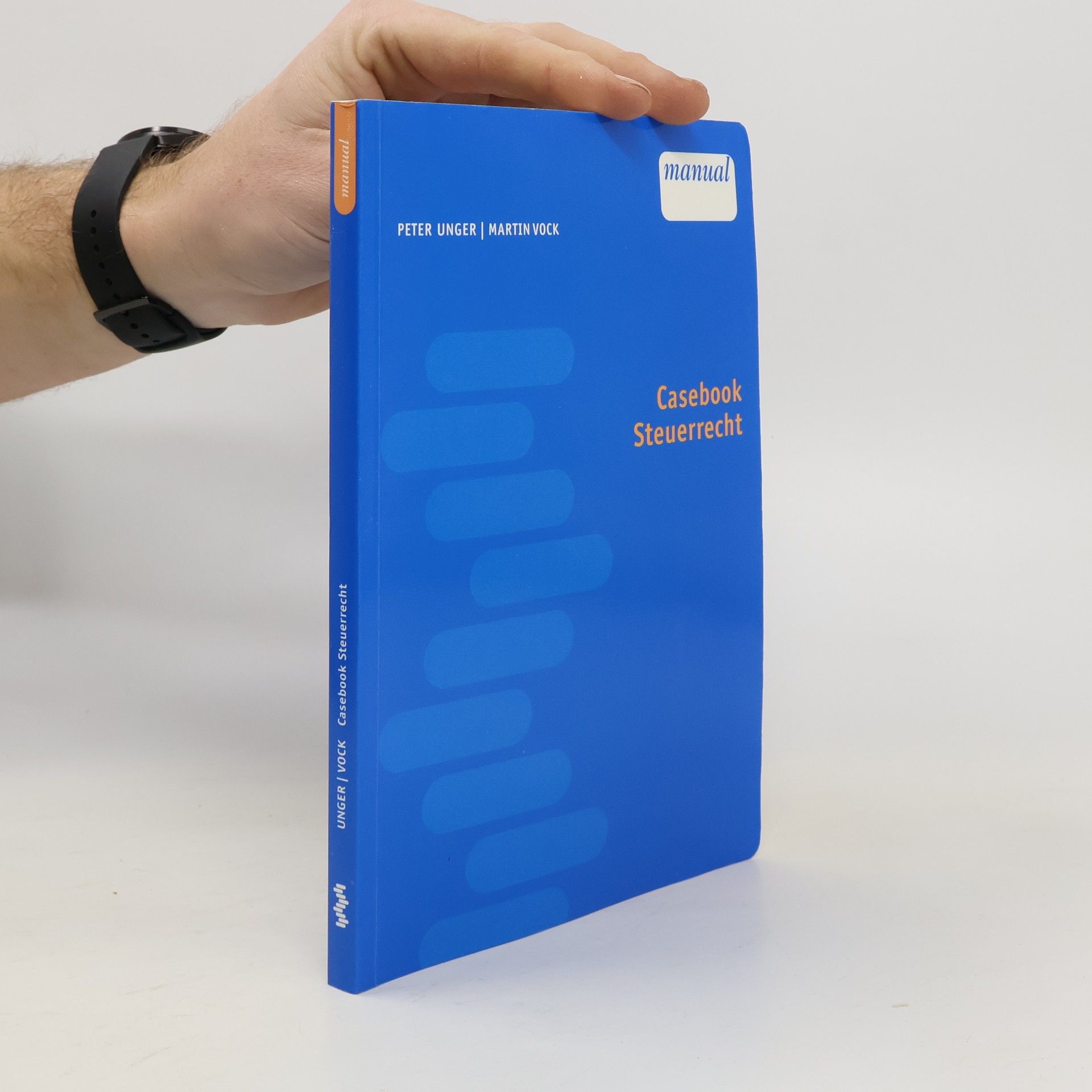Das „Handbuch für Einnahmen-Ausgaben-Rechner“ bietet in der vorliegenden zweiten Auflage eine komplette und systematische Darstellung auf neuestem Stand. So wurden das Budgetbegleitgesetz 2007 (Änderung des Verlustvortrages), die Steuerreform 2009 (die vor allem wesentliche Änderungen bei der Gewinnermittlung brachte), die Auswirkungen des Familienpakets und die Änderungen der Umsatzsteuer 2010 berücksichtigt. Hinweise für Praktiker, zahlreiche Erläuterungen und Beispiele sowie die übersichtliche Gliederung machen das Buch zu einem unentbehrlichen Arbeitsbehelf für die tägliche Praxis. Aus dem Inhalt: Einnahmen-Ausgabenrechnung im formellen/materiellen Sinn Einkommensteuer Umsatzsteuer Lohnsteuer und Sozialversicherung Kontakt mit dem Finanzamt
Peter Unger Book order (chronological)
Peter Unger is Professor of Philosophy at New York University. He has written extensively in epistemology, ethics, metaphysics and the philosophy of mind. He has had fellowships from the National Endowment for the Humanities and the Guggenheim Foundation.






BAO 2020/2021
Einführung in das Recht der Bundesabgabenordnung
Dieses Werk bietet eine systematisierende Einführung in das Recht der Bundesabgabenordnung, um Studierenden und Praktikern den Zugang zu erleichtern. Die siebente Auflage berücksichtigt die neuen rechtlichen Rahmenbedingungen nach der Finanzorganisationsreform und behandelt auch die Auswirkungen der COVID-19-Pandemie.
Das hält keiner bis zur Rente durch!
- 304 pages
- 11 hours of reading
Warum fällt es so schwer, aus dem Hamsterrad auszusteigen, obwohl wir wissen, dass es uns schadet? Diese Analyse beleuchtet die oft verborgenen Gründe für die Stresskrise. Es sind nicht nur persönliche Verhaltensweisen, die uns in die Erschöpfung treiben. Wer die subtilen Abläufe in Unternehmen, den Einfluss gesellschaftlicher Manipulation und die evolutionsbiologischen Grundlagen der Stressreaktion versteht, findet einen nachhaltigen Weg zu einer gesunden Balance zwischen Leistung und innerer Zufriedenheit. Die Autoren, ein renommierter Stressmediziner und eine erfahrene Journalistin und Trainerin, untersuchen die wahren Ursachen der Stressplage. Psychische Probleme wie Burnout und Depressionen zwingen viele Beschäftigte, frühzeitig aus dem Berufsleben auszusteigen. Statt Veränderungen herbeizuführen, wird über Stress oft wie über das Wetter gesprochen. Die Autoren identifizieren persönliche und gesellschaftliche Mechanismen, die uns in die Burnout-Falle treiben, und zeigen Wege aus der Erschöpfungsspirale. Die Diskussion über die „Burnout-Epidemie“ ist auch eine gesellschaftliche Auseinandersetzung mit dem Sinn des Lebens. Mit Erkenntnissen aus Medizin und Psychologie wird aufgezeigt, wie jeder aktiv sein Lebensgefühl beeinflussen kann. Praktische Handlungsmöglichkeiten für eine gesundheitsförderliche Arbeitsgestaltung und Führungskultur werden angeboten, um Stressquellen effektiv zu begegnen und ein zeitgemäßes Gesundheitsm
Steuerskriptum „Steuerrecht - graphisch dargestellt“, 6. Auflage mit Stand Juni 2016: Die optische Aufbereitung komplexer Zusammenhänge hilft dem Leser den Stoff besser zu erlernen und zu behalten, die Visualisierung des Textes erleichtert das Lernen. Dieses Skriptum bietet die graphische Darstellung der Einkommensteuer, Körperschaftsteuer, Umsatzsteuer, des Verfahrensrechts und sonstiger Steuern und trägt zum leichteren und besseren Verständnis der komplexen steuerrechtlichen Zusammenhänge bei. Das Skriptum stellt eine ideale Ergänzung zu gängigen steuerrechtlichen Lehrbüchern und Skripten dar und richtet sich an Studierende der Rechts- und Wirtschaftswissenschaften sowie facheinschlägiger Fachhochschulstudien ebenso wie an Personen in entsprechender Berufsausbildung (vor allem Berufsanwärter, Konzipienten, Wifi /Bfi /VHS-Kursbesucher udgl) und dient als alternatives Nachschlagewerk für die alltägliche Praxis.
Ausstieg aus der Erschöpfungsspirale Seelische Erschöpfung entwickelt sich immer rasanter zur Krankheit Nummer eins im Job. Mehr und mehr Arbeitnehmer geraten in eine Abwärtsspirale. Es fängt harmlos an: wachsender Termindruck, mangelnde Wertschätzung. Häufig folgt Sorge um den Arbeitsplatz, schließlich permanente Selbstüberforderung. Am Ende steht die Diagnose: stressbedingte Erschöpfungsdepression. Erstmals zeigt dieses Buch den Mechanismus der schleichenden Erschöpfung. Es beschreibt Warnzeichen und Ausstiegsmöglichkeiten aus dem Teufelskreis. Und es legt den Finger in die Wunde: Nach neuen gesetzlichen Bestimmungen haben Arbeitgeber Verantwortung für die psychische Gesundheit ihrer Angestellten. Nicht nur jeder Einzelne, auch Unternehmen und Politik müssen handeln.
Anhand von Fällen und Beispielen veranschaulicht dieses Casebook die zentralen Probleme des Steuerrechts. Der erste Teil umfasst kurze Beispiele und Fälle und führt Studierende mit wenig bis keinen Vorkenntnissen in das Finanzrecht ein, der zweite Teil besteht aus anspruchsvollen Fällen auf Diplomprüfungsniveau. Inhaltlich behandelt das Werk alle zentralen Steuerarten: Einkommen- und Körperschaftsteuer; Umsatzsteuer; Erbschafts- Schenkungs-, Grunderwerbs- und Kapitalverkehrsteuer sowie Gebühren. Zuletzt werden das Finanzstrafrecht sowie der allgemeine und der verfahrensrechtliche Teil der Bundesabgabenordnung aufbereitet. Die Lösung der Fälle berücksichtigt auch die theoretischen Grundlagen und holt etwas weiter aus, wenn dies aus didaktischen Gründen angebracht erscheint.